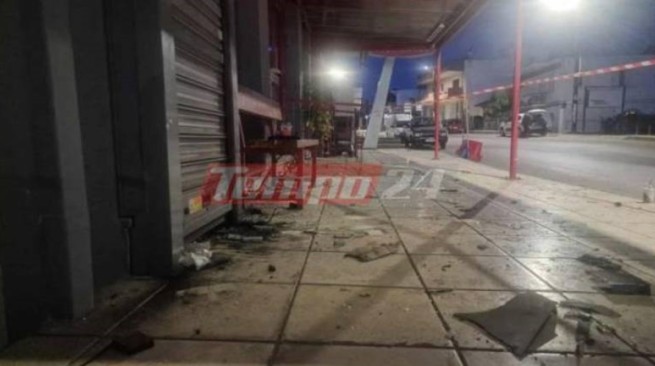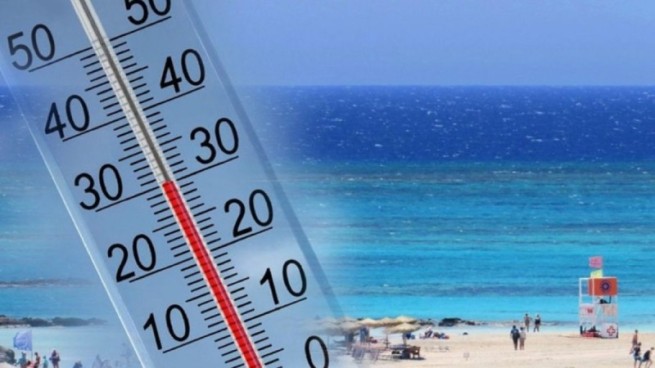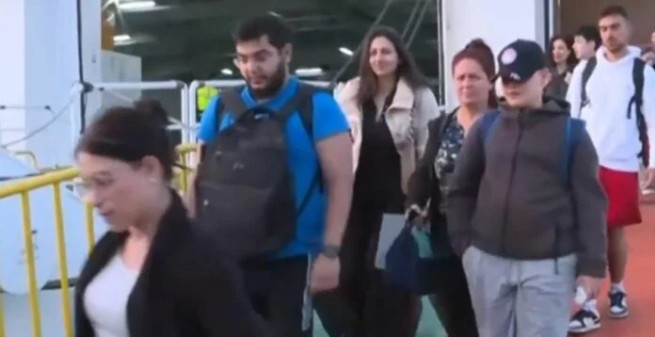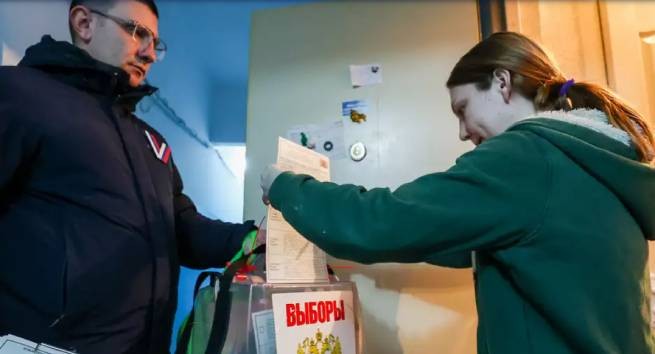For the first time, elections were held in Ukrainian regions annexed by Russia. How did Ukrainians vote? Moscow talks about “high turnout.”
DW sources with first-hand knowledge of the situation they tellhow the process took place in Energodar, Berdyansk, Lugansk region.
Western countries have called the “elections” in the parts of Ukraine annexed by Russia illegal, but Moscow has already reported a particularly “high turnout” in the “new regions” (this is what the Russian Federation calls the occupied parts of the Zaporozhye, Kherson, Donetsk and Lugansk regions of Ukraine). At the same time, DW sources in the Zaporozhye and Luhansk regions say that many Ukrainians who remained to live in the annexed territories did everything to ignore the “elections.” The names of the interviewees below have been changed for security reasons.
In the occupied territories, unlike the Russian regions, where voting took place from March 15 to 17, the process intensified at the beginning of the week. From March 11, schoolchildren were transferred to distance learning, schools were closed for the work of election commissions, and government officials, accompanied by armed military personnel, began going door-to-door to collect signatures, sources tell DW.
Energodar
In Energodar, which has been under Russian occupation since 2022, and nearby villages, this approach to voting was justified by security measures – “so as not to create queues,” says Alexandra, a public activist and employee of the Zaporozhye Nuclear Power Plant. She left the city in the summer of 2023, but maintains constant contact with those who remained. According to her, after the experience of the so-called “referendum on accession” of the region to the Russian Federation in the fall of 2022, locals expected the same pressure during the “elections” of the president. However, this time everything went “more calmly.” Alexandra says:
“My friends who live in apartment buildings did not open the door to them (authority representatives), and they did not insist, as before, during the “referendum,” but simply moved on.
According to her information, many locals locked themselves at home these days and even turned off their phones to avoid participating in the “elections.” The image of support was created by “fans” of Russia, she says, who “strive to demonstrate their desire to please the president and the current “authorities.”
In the conditions of “elections” at home, the principle of voting secrecy was not observed: often those who opened the door to members of the commission were filmed. This is confirmed by videos circulated on social networks. It was impossible to spoil the ballot in the presence of people with machine guns in such cases, says the publication’s interlocutor.
The opportunity to vote both at home and at the polling station allowed pro-Russian residents to cast their votes twice: according to Alexandra, her friends said that no registration of “voters” was kept. Some ballots in the occupied territories differed from Russian ones in the absence of a hologram and a seal; they looked like they were “printed out on a printer.”
Berdyansk
People are hiding, and neighbors are renting out, says Berdyansk native Kristina:
“Many of my friends simply left the city during this period, because there are neighbors who open their doors and report on who is hiding at home. Some simply closed their doors. They even turned off their phones. Everyone is scared.”
Christina worked in the public sector and left her captured hometown in the fall of 2022, but still maintains contact with those who remain there. They started going around houses to vote en masse in Berdyansk on March 15; before that, signatures were collected mainly in nearby villages, the woman says:
“They say that groups of two civilians and two military men armed with machine guns walked around the city to collect signatures on the lists. It’s true that they were outdated – they also included the names of those who sold their apartment many years ago and moved. People say that they behaved (representatives election commissions) politely – literally persuaded to open the doors, without coercion, as during the “referendum”.
She is not aware of cases of refusal to vote or damage to ballots, although she is convinced that this was impossible “at gunpoint” – just like maintaining the secrecy of voting. People on the streets were also approached with requests to vote “for a better future,” says Christina:
“I haven’t heard of anyone being grabbed, but they say that it was difficult to shrug off: they were following on their heels. Only those who were on the lists voted on the street. Otherwise, they asked to take an absentee ballot at the polling station in order to vote on the spot. They didn’t even ask if I had a Russian passport.”
On the eve of the vote, work on repairing roads and roofs of houses intensified. Christina is not aware of any overt cases of bribery. Although, as her sources say, at a meeting of the owners of condominiums it was announced that the building where more residents voted would be the first to be modernized:
“Before that, new buses were brought to Berdyansk and new elevators were installed in the houses, they keep their promises. Those heads of condominiums who agreed to cooperate, because of this, put pressure on the residents. But there are also those who are forced to attend these meetings so that the house was not given subordination to someone else, and still avoids submitting details for inclusion in the registers of the Russian Federation.”
According to her, in early March, a local collaborator involved in organizing elections was killed in Berdyansk, and in some areas of the city, in particular on Gaidar Boulevard, leaflets appeared with threats to other collaborators.
Lugansk region
A resident of one of the settlements of the Starobelsky district of the Luhansk region, Anna, in a conversation with DW, notes that the “elections” were more calm than she expected. Although there were no polling stations in schools, children were still transferred to distance learning from March 11, “for fear of provocations.” According to the woman, they did not put pressure on them to vote, even on employees of one of the Ukrainian state-owned enterprises appropriated by the Russian Federation. But it’s not customary to talk about elections, because it’s scary. She says:
“There was no noticeable campaigning as such. There were advertising posters not only for Putin. And on the day of silence they were obliged to take it all down.”
She did not notice any rush at the polling stations, and on election days there were fewer people on the streets. According to her observations, they went with ballot boxes mainly to the homes of people with limited mobility; they came, for example, to her neighbor:
“He said that they didn’t even ask for his last name or documents, he signed and that’s it. He wasn’t wearing glasses, so he didn’t even understand who he voted for.”
The woman herself did not vote, like most of her friends. But on the eve and during the elections, people did not openly discuss whether they were going to vote and for whom exactly: “It is generally not customary to talk about such topics, except in hints, because they are afraid that they will give up.”
https://www.youtube.com/watch?v=z3oK8WbdPts
The opinions of people in the occupied territories are mixed:







More Stories
The Russian Federation has put the Ukrainian president on the wanted list for an unnamed "Article of the Criminal Code"
Ombudsman: all orphans returned by Ukraine end up in families
Deputy Head of the Main Intelligence Directorate: "Such wars can only end with agreements"